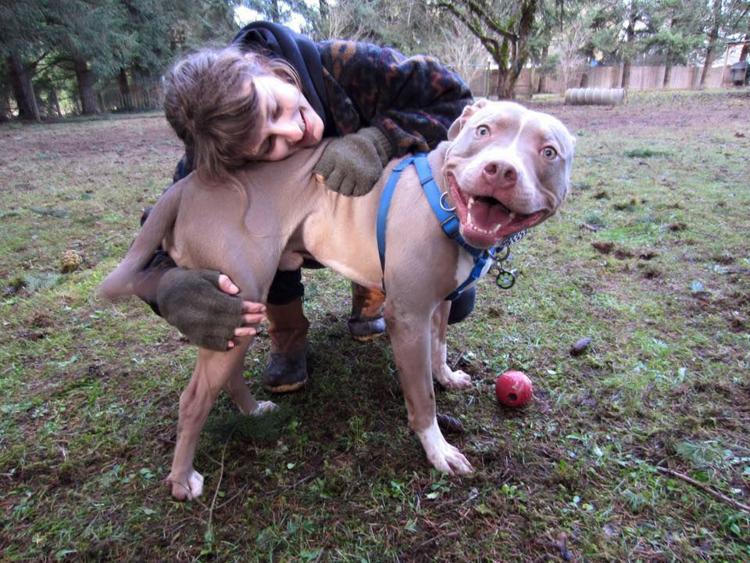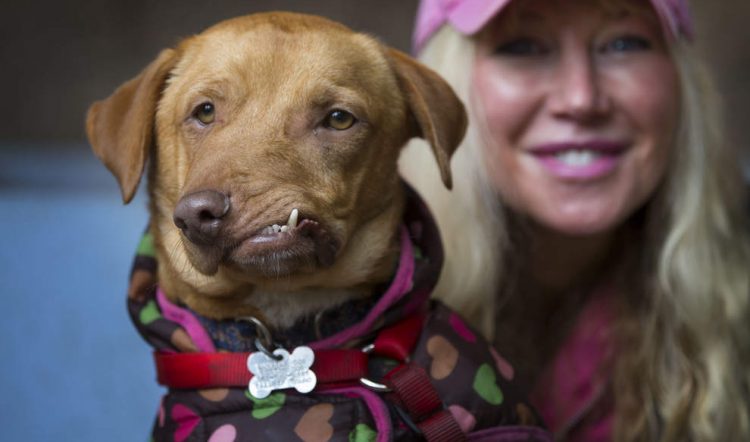As the COVID-19 pandemic has disrupted all aspects of normal life, the care that rescue animals need has not diminished. Local animal shelters and rescue nonprofits are modifying their services to continue to protect these animals, but the pandemic has left some of the organizations in a state of uncertainty.
A number of animal shelters and rescuers in Lane County have limited adoptions to one-on-one appointments and asked volunteers to stay home, with some saying they have — or may soon need — to let staff go.
The Shelter Animal Resource Alliance raises most of its funds from its thrift store S.A.R.A.’s Treasures. The organization shelters animals that were rescued from euthanasia and sells donated items to support them. But because the store is now limited to curbside pickup for pet food and supplies due to COVID-19, there is generally only one staff member working at a time, Director of Operations Kelly Coulter said.
According to Coulter, S.A.R.A.’s adoption process requires that people adopting pets personally interact with the animal before making a lifelong commitment.
“We haven’t had anybody that seemed serious enough to do that yet,” she said, but “if the perfect person came along, we would find a way to make it work out.”
S.A.R.A. does not have “a huge fostering network,” but is working to expand it in response to the high number of people that have asked about fostering animals. “We need as much help as we can get right now,” she said.
Because S.A.R.A. is a small business, and because its main source of income is essentially closed, it has limited financial reserves for payroll and expenses for its animals, Coulter said. S.A.R.A. is a no-kill rescue group, so if the shelter is eventually unable to stay open, she said its staff would need to find somewhere to place the animals.
Coulter said rescuing is particularly difficult right now in Oregon because of Gov. Kate Brown’s recent order temporarily halting elective and non-urgent surgeries, which includes spaying and neutering.
“That’s a huge obstacle and is probably gonna cause a huge influx of kittens being born,” Coulter said.
While animals at Greenhill Humane Society are still being taken in and adopted daily, adoption numbers have clearly declined, according to Events and Community Engagement Manager Megan Brezovar.
Brezovar said Greenhill’s staff are concerned that people facing financial crisis will resort to surrendering pets to the shelter. To help prevent that, she said, staff are stocking up their community pet food bank to be able to offer free pet food.
Brezovar said that people wanting to support their fellow community members can donate dog or cat food to the pet food bank by dropping it off at the donation shed in Greenhill’s parking lot. All of Greenhill’s funds come from donations, grants and private donors, she said, and those that want to help can donate money to the shelter.
A New Leash on Life Pet Rescue and Transport is a nonprofit organization co-founded by Jane Gilbert, who said the organization is essentially “the middleman” that connects two ends of a rescue network. That network spans from the Mexican to the Canadian borders, and shelters in California often rely on it to help place dogs and prevent them from being euthanized.
Gilbert said the stay-at-home mandate barring elective surgeries was “a paralyzing blow to the whole network” due to the risk of pet overpopulation, which can lead to increased rates of abuse, neglect and abandonment.
“I think that we’re gonna see the effects of this mandate for years to come,” Gilbert said. “It’s gonna take a lot of us to get this back under control.”
Gilbert said she has found that “People are wanting to foster or adopt more than ever,” but because the organization can no longer get animals spayed or neutered after rescuing them, it cannot adopt them out.
Instead, they would need to be fostered, which she said is a short-term solution because “it would be really hard to build a foster system that could be managed and the animals could be protected properly.”
Luvable Dog Rescue has stopped adoptions for pre-approved adopters, founder and Executive Director Liesl Wilhardt said. But the nonprofit animal rescue organization’s staff have met some potential adopters in public places and observed social distancing, she said, to have homes lined up for as many of their dogs as possible.
Wilhardt said she is “trying very hard not to panic” about the uncertainty surrounding how long the COVID-19 pandemic will last, as the organization’s revenue is down due to it’s “dramatic decrease in donations” and the difficulty of holding fundraising events.
“What if people no longer have the luxury of being able to give to a group like ours or another animal welfare organization?” she asked. “We can exist because our community supports us, but our community has to be able to take care of itself first, you know, and I don’t know what’s gonna happen. I’m pretty scared actually.”
She said it may have to reduce the number of animals by “placing them into homes” while continuing to not take in new animals.
SevaDog Rescue takes in dogs — typically that other rescues or shelters are struggling with or need help placing — houses and trains them, helps them find homes or shelters them for life if they aren’t adopted, said founder Mandy Cracknell.
The organization currently has close to 30 dogs and only two staff members taking care of them, according to Cracknell. Over the past month, donations dropped significantly because some of its donors lost their jobs and the organization is not allowing adoptions for the time being.
“Just to keep our community safe, we have to do our part and shut down,” Cracknell said.
Cracknell said that it’s difficult as a nonprofit for SevaDog Rescue to feed its animals and pay for necessities like housing and electricity when donations are scarce.
Cracknell’s other job as a dog trainer, which has stopped due to COVID-19, previously helped fund the rescue, she said. “We’re gonna run out of money, that’s what’s gonna happen, and I’m gonna have to make some really tough decisions,” she said. “I don’t know what I’ll do, I have no idea.”
Cracknell said if people can afford to donate just a bag of food, “that really goes a long way.”
ARTICLE WRITTEN BY Ardeshir Tabrizian
Apr 20, 2020 for Daily Emerald – Eugene, Oregon



